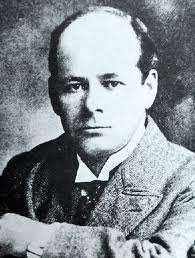By Stephen Andrew Missick
Jesus did not speak English, Latin or Greek-Jesus spoke Aramaic!
© Copyright 2012 Stephen Andrew Missick
What language did Jesus speak and why does it matter?
The life of Jesus was the most important live ever lived. Jesus literally divided and changed history. The words of Jesus are the most important words ever spoken. This is especially true for the Christian. As this is true it is very important to understand the cultural and historical context of the spoken words of Jesus Christ and the original language in which his words were spoken. The evidence from the New Testament, archeology, the Church Fathers, and other textual evidence indicates that Jesus spoke Aramaic. Many Aramaic words are found scattered throughout the text of the New Testament. Aramaic is a language that is closely related to Hebrew. (Aramaic and Hebrew both evolved separately from an earlier extinct language called Proto-Semitic.) Aramaic is on of the original languages of the Old Testament. Ezra and Daniel contained lengthy sections that are written in Aramaic.
Jesus' Aramaic words-Abba, Father and others
In several occasions in the Gospels, Jesus is quoted speaking in his native Aramaic language. Those familiar with the Bible are familiar with Aramaic, although they may not realize it. One of the most well-known Aramaic words in the New Testament is the word that Jesus used for His Heavenly Father-Abba. Certain Aramaic scholars feel that this word is a more intimate word than "Father" and it's meaning is closer to the word "Daddy." Jesus gave his disciples Aramaic nicknames. This is seen in the name Cephas (actually Kefa) the Aramaic version of "Peter" which is used in the Gospel of John and in the Epistles of Paul. Jesus named James and John "Boanerges" which means "Sons of Thunder" in Aramaic. Other Aramaic names include Martha (Aramaic for "lady"), Thomas (Aramaic for "twin") and Magdalene (Aramaic for "tower"). In Hebrew "Ben" means "Son." However, we most often find the Aramaic form "Bar" (meaning "Son") in the New Testament in names like Barnabas ("Son of Encouragement" in Aramaic), Barabbas ("Son of the Father" in Aramaic) and Bartholomew (probably Aramaic for "Son of Ptolemy.").
Jesus: The Son of Man and Maranatha
About 80 times in the Bible, Jesus calls himself "the Son of Man." In Aramaic this is "Barnasha" and has many levels of meaning including meaning "A Human Being" or "a person." It seems that Jesus was quoting the Aramaic section of the Book of Daniel that refers to a cosmic pre-existent Messiah who brings the Kingdom of God. Daniel calls this mysterious figure-the Son of Man.
Paul closes his First Epistle to the Corinthians with a short Aramaic prayer-Maran atha. This is Aramaic for "Our Lord-come!" So we see that for the earliest Aramaic speaking Christians Jesus was Lord.
The Passion of the Christ
Many Christians have never heard of Aramaic. However, those who watched the movie "The Passion of the Christ" have been exposed to Aramaic. Most of this movie is in Aramaic. (There are a few Hebrew expressions used in the movie and there are also sections in the film that are in Latin.) When Jesus was on the cross of Golgotha (Aramaic for "the Place of the Skull") He said, "Eloi, Eloi lama sabachtani." This is Aramaic for "My God, My God, why hast thou forsaken me." (If Jesus had been speaking Hebrew he would have said, "Eli, Eli, lama azabtani." The words Jesus is quoted as speaking in the Gospel are Aramaic and not Hebrew.) Jesus was quoting Psalm 22. Psalm 22 along with Isaiah 53 are Old Testament prophecies about the crucifixion and the atonement.
Aramaic and the Apostles: Thaddeus and Thomas
According to ancient Aramaic documents and writings of the Church Fathers, the Apostles Thaddeus and Thomas carried Christianity to the Aramaic speaking people of Assyria and Babylonia. According to the story, an Assyrian king named Abgar heard of the miracle working power of Jesus of Nazareth. He sent a message to Jesus to come and heal him and to dwell in his kingdom. Jesus refused to go but promised to send an apostle after his resurrection and ascension. At the day of Pentecost, Thomas, filled with the Holy Spirit, sent Thaddeus to plant the Gospel in Mesopotamia. The Assyrians believed and converted. Later, Thomas also preached to the Assyrians on his way to India.
The Assyrian Church of the East
Jesus spoke of the Assyrians (or Ninevites) who repented at the preaching of Jonah. Every year, the Assyrian Christians celebrate a festival called "The Rogation of the Ninevites" to remember how their ancestors believed in the One True God in ancient times. Founded by the Apostles, the Assyrian Church of the East is the church of the Assyrians and its heartland was Mesopotamia (although it extended to the furthest regions of the East). The Assyrian Church of the East is one of the churches of the Aramaic Church tradition. (Other churches included the Chaldean Catholic Church, the Syrian Orthodox Church and the Maronite Church. There are also the Mandaean Baptists but they follow John the Baptist and not Jesus and are not Christians.)
Aramaic Christians in China, Mongolia and India
Jesus told his followers to carry his message to all of the world. The Aramaic Christians took this command very seriously. Before the year 800 A.D. they had planted churches in China, India, Mongolia and even on remote islands off of the coast of Africa such as Socotra. Due to religious persecution coming from radical Muslims and other factors these churches (with the exception of the church of India) have disappeared. Inscriptions in Chinese, Mongolian and Aramaic have been found all across Central Asia and China and the remains of old churches and scrolls containing Christian teachings have been found by archeologists.
Aramaic Church Fathers
Many are familiar with the Church Fathers who wrote in Greek and Latin. However, several Church Fathers wrote in Aramaic. These Church Fathers wrote in a form of Aramaic called Syriac. ("Aram" is actually an old way of saying Syria.) Syriac is very close to the form of Aramaic that was spoken by Jesus Christ and his Apostles. Tatian the Assyrian was a disciple of the famous Saint Justin Martyr. Tatian the Assyrian was the first person to compose a harmony of the Gospels. He did this in a Greek and an Aramaic edition. Saint Ephraim is another famous Aramaic Church Fathers. There were many Aramaic theologians and Bible scholars whose writings have come down to us.
The Aramaic Bible
Parts of the Old Testament were written in Aramaic. Some time after the Babylonian Captivity and the return to the land of Israel under Ezra and Nehemiah, Aramaic had displaced Hebrew as the primary spoken language of many of the Jewish people in the land of Israel. Translations of the Bible into Aramaic were made so that the people could know the Bible. (Jesus is quoted in the Gospels as recited an Aramaic version of Psalm 22 from the cross.) Some of these Aramaic Bibles, called Targumim, have been discovered among the Dead Sea Scrolls. The Jewish people have preserved Targumim and still use them. With the spread of Aramaic Christianity, it was necessary to have an Aramaic version of the New Testament in order to meet the spiritual needs of Assyrian Christians. The Bible used by Aramaic Christians is called the Syriac Peshitta. (Scholars believe that the Peshitta Old Testament is a Targum translated by an ancient sect of Messianic Jews.)
The Rise of Islam
The emergence of Islam was the greatest tragedy that befell the Aramaic Christians. Muslims invaded their homeland and then persecuted and exploited the Christians. According to the injunctions of the Koran, Muslims waged war against Christians, Christians were placed in a status of humiliation and were forced to pay protection money called the Jizya (Koran 9:29). Muslim leaders constantly extorted huge sums of money from the Christian peoples they had conquered. Many could not afford to pay the "jizya" tax they were required to pay in order to be allowed to continue to practice Christianity and so they converted. Over time, the number of Christians diminished. Although there were occasional tolerant Muslim leaders who refused to implement the brutal and barbaric Sharia legal system of discrimination upon the Christians, every 50 years or so Assyrian Christians (as well as the Coptic Christians in Egypt) endured horrific persecutions that included Muslims massacring multitudes of Christians.
The Current Plight of Middle Eastern Christians
Sadly, the Islamic persecution of Christians is not a thing of the past. In the beginning of the twentieth century Muslims killed over one million Armenian (and Assyrian) Christians. At the end of the twentieth century, over a million Sudanese Christians were killed by Muslims. At the beginning of the twenty-first century, the persecution of Assyrian Christians in Mesopotamia and the Coptic Christians of Egypt has intensified. In 2004 Muslim radicals bombed churches across Baghdad during religious services. On October 31, 2010, a horrific church massacre occurred in Baghdad in which over fifty Christians were viciously slaughtered. When making the movie "The Passion of the Christ" Mel Gibson said that he was filming it in an extinct language. However, Aramaic isn't extinct yet. Certain Christians in the Middle East and Middle East Christian immigrant communities in the west still speak Aramaic. Aramaic is a threatened language because radical Muslims are attempting to ethnic cleanse the Middle East of its indigenous Christian communities and assimilation to the west (which includes the loss of Aramaic-speaking) is a rapid process.
A List of Aramaic Words in the New Testament
Abba, Father
And he said, Abba, Father, all things are possible to thee; take away this cup from me: nevertheless not what I will, but what thou wilt. (Mark 14:36)
The Aramaic word "Abba" is also found in the writings of Paul in Romans 8:15 and Galatians 4:6) Abba is an Aramaic loan word in Modern Hebrew. The Hebrew word is "avi." God is called "Father" over 100 times in the Gospels!
Eloi, Eloi lama sabachtani
And at the ninth hour, Jesus shouted in a loud voice, "Eloi, Eloi lema sabachtani?" which is translated, "My God, my God, for what have you forsaken me?" (Mark 15:34) See also Matthew 27:46.
Talitha Koum
And taking the hand of the child, he said to her, "Talitha koum," which is translated, "Little girl, I say to you, get up." (Mark 5:41)
Maranatha
"Maranatha" 1 Corinthians 16:22. This word is also used in the Didache. It means "Come, Our Lord." The word for "Lord" in Hebrew is "Adonai."
Cephas
Jesus looked at him and said, "You are Simon son of John. You will be called Cephas" (which, when translated, is Peter). NIV footnote: Both Cephas (Aramaic) and Peter (Greek) mean rock. John 1:42. (See also 1 Corinthians 1:12 and Galatians 2:9).
THERE ARE MANY MORE ARAMAIC WORDS FOUND SCATTERED IN THE TEXT OF THE NEW TESTAMENT.
About the Author
Stephen Andrew Missick has traveled extensively in the Middle East and has lived with the Assyrian Christians in Mesopotamia and the Coptic Christians in Egypt. He has served with the military in Operation Iraqi Freedom in 2003-2004 and 2009-2010.
He has graduated with a Masters of Divinity from Southwestern Baptist Theological Seminary.
Stephen Missick is the author of several books on the Aramaic language and the Aramaic Christian heritage.
These include:
The Words of Jesus in the Original Aramaic: Discovering the Semitic Roots of Christianity
The Language of Jesus: Introducing Aramaic
Aramaic: the Language of Jesus of Nazareth
Stephen Andrew Missick is available to come to your church and give a presentation on Aramaic, the Aramaic Christian heritage and Islamic and Christian relations and the problem of religious persecution of Christians.
For more information or to contact Stephen Missick:
PO Box 882, Shepherd TX 77371
stephenamissick@hotmail.com,
www.youtube.com/aramaic12,
www.aramaicherald.blogspot.com
King of Saints Church, Cleveland, Texas 281-592-4104
References
There are organizations that give to help the persecuted Christians of the Middle East. These include: the Barnabas Fund www.barnabasfund.org and Iraqi Christian Relief Council http://www.iraqichristianrelief.org.
Christian history is often told from a Euro-centric point of view with the contributions of the Christians of Asia and Africa ignored. Recently, books have been published that rectify this problem.
History of the World Christian Movement: Earliest Christianity to 1453 by Dale Irvin and Scott W. Sunquist
A History of Christianity in Asia: Beginnings to 1500 by Samuel Hugh Moffett
The Martyred Church: A History of the Church of the East by David Wilmshurst
The Church of the East: An Illustrated History of Assyrian Christianity by Christoph Baumer
Christians in Asia before 1500 by Ian Gilman and Hans-Joachim Klimkeit
Stephen Andrew Missick's books on "The Language of Jesus" include a helpful "Aramaic Resource Guide" that lists good Aramaic resources.

http://aramaicherald.blogspot.com/2012/04/christs-words-in-his-own-language.html











